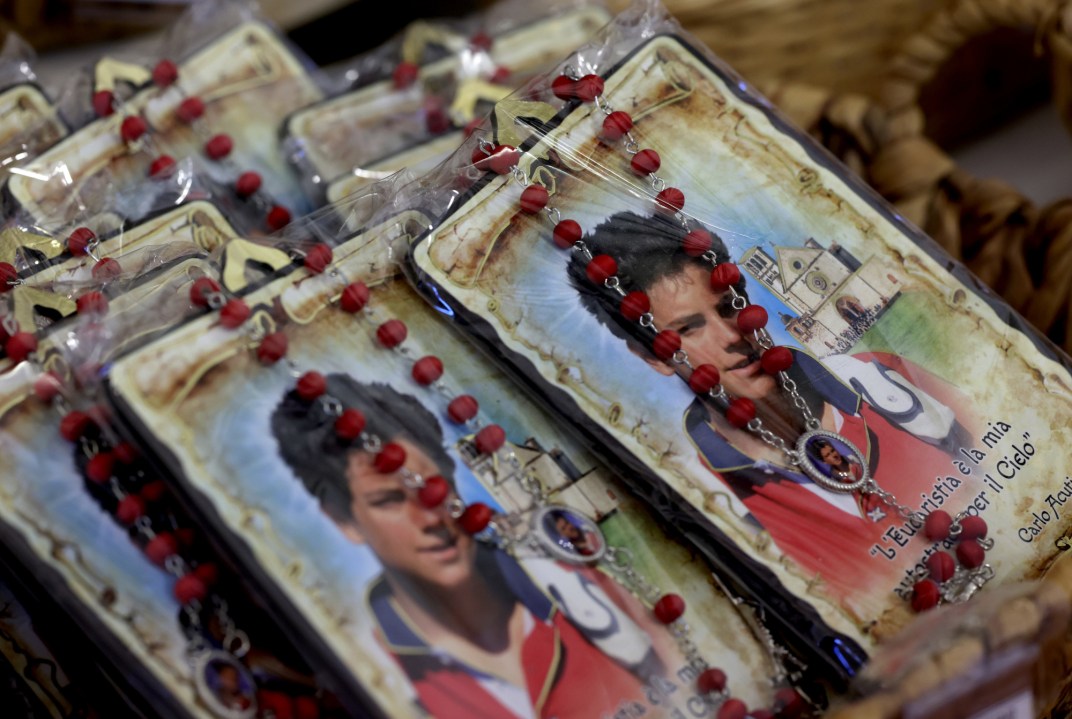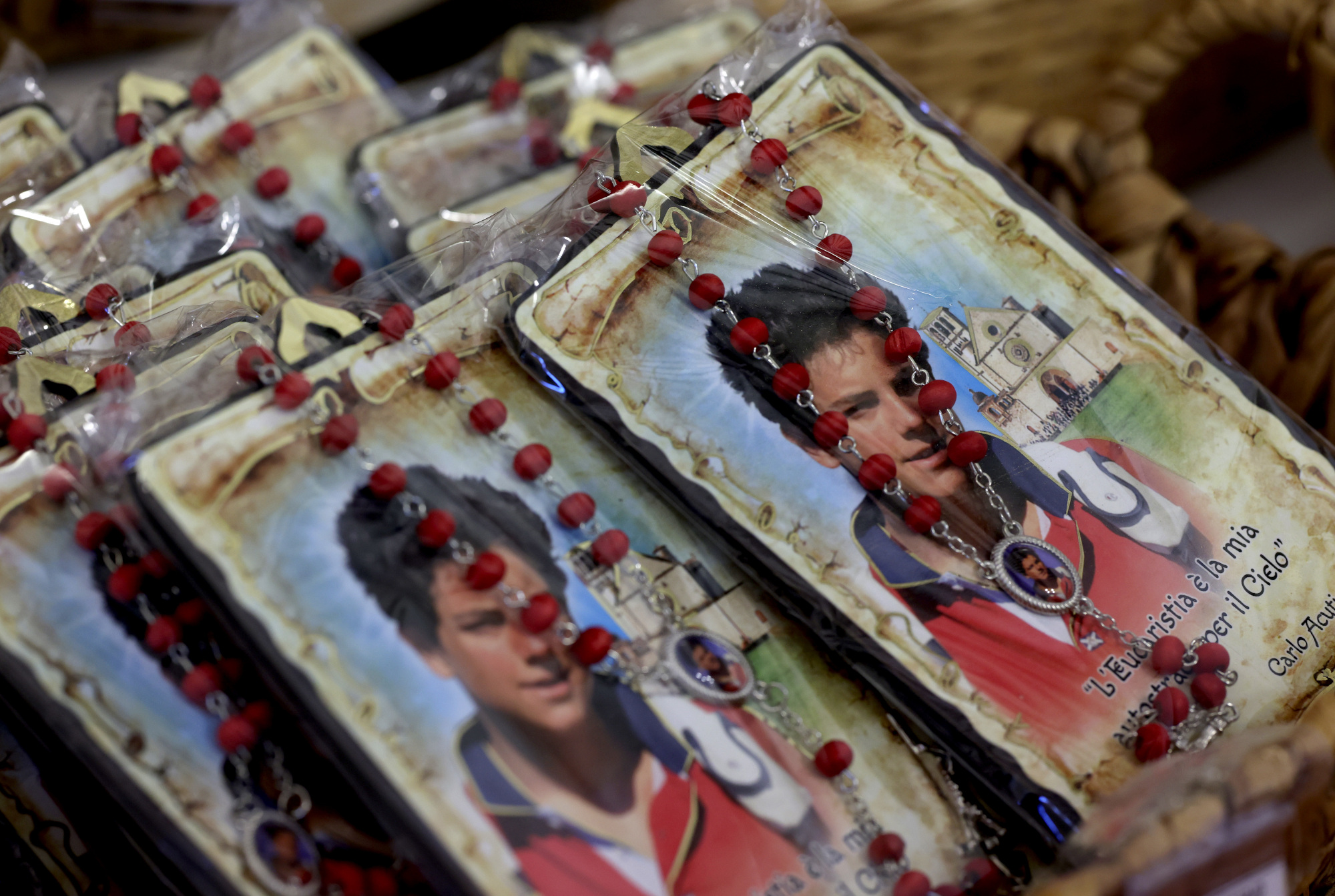Today, Pope Leo XIV will perform his first two canonisations, both of which were due to take place earlier this year but postponed after the death of Pope Francis. The recipients will be Pier Giorgio Frassati, an early twentieth century Catholic activist from Turin, and the 21st century’s first saint, Carlo Acutis – also known by the awful Gen-Z nickname of ‘God’s influencer’. The canonisation process – from death to beatification and eventually sainthood, which can take centuries – rests on miracle-attribution, an activity that is as fascinating as it is philosophically flawed.
Carlo Acutis is also known by the awful Gen-Z nickname of ‘God’s influencer’
Acutis, a London-born Italian, was 15 years old when he died in 2006 from leukaemia. He created a website, launched just before his death, that sought to document every Eucharistic miracle around the world – that is, any miracle involving the Eucharist, in which the Host (bread) is typically said to have transformed into blood or heart tissue. This was missionary work for the internet age, for which the incoming saint earned his tacky-sounding nickname. But the so-called miracles attributed to Acutis, two of which are required for sainthood, belong to a millennia-old classic of the genre: healing.
Acutis’s first miracle, for which he was beatified by Pope Francis in 2020, was the reputed healing of a ten-year-old Brazilian boy with a congenital disease of the pancreas. Doctors declared that the child no longer suffered from the condition, which is typically only treatable by surgery, after he touched a piece of Acutis’s clothing. The second and crucial miracle, which will propel Acutis to sainthood next spring, was another apparently inexplicable healing, this time of a student in Florence with severe brain trauma. But what exactly is a miracle, and is there ever good enough reason to believe that one has occurred?
The Catechism of the Catholic church defines a miracle as ‘a sign or wonder such as healing, or control of nature, which can only be attributed to divine power’. Within the Vatican, it is the task of the Dicastery for the Causes of Saints to investigate whether a reported event confirms to this definition, as well as decide whether the life of the person in question was sufficiently virtuous. If this panel is satisfied on both counts, it presents its report to the Pope, who then decides whether or not to perform a beatification or canonisation.
Almost three centuries ago, the great Scottish philosopher and agnostic David Hume argued that it is never rational to believe that a miracle has occurred. In his 1748 masterpiece, ‘An Essay Concerning Human Understanding’, Hume defined a miracle as ‘a transgression of a law of nature by a particular volition of the Deity, or by the interposition of some invisible agent.’
Note the similarities between this definition and that of the Catholic church: a miracle requires the laws of nature to be violated or suspended – it must be an event for which science has no explanation (at least at the time). Both definitions trigger questions which have been the subject of discussion amongst philosophers and scientists for centuries, and still are: what exactly is a law of nature? What does it mean for such a law to be ‘broken’? Wouldn’t that just show that the hypothesis in question isn’t a law after all, and that we need to find another one?
Hume’s argument for it never being rational to believe that such an event has occurred is packed with insights into the nature of human belief. Its central thrust is this: that when someone tells you a miracle has occurred, you should only believe him or her ‘if the falsehood of [their] testimony would be more miraculous, than the event which [they relate].’ It’s much more likely, says Hume, that they are mistaken in some way, or potentially out to deceive you, than that the whole of past experience (i.e. that diseases aren’t cured by touching cloth) has been refuted.
The miracle-judging panel in the Vatican doesn’t, of course, employ Humean reasoning in its investigations: it would never be able to put anyone forward for sainthood if it did. Its starting point is that miracles happen, and that it’s not just rational but desirable to believe in them. But Acutis’s forthcoming canonisation encourages the rest of us to ask intriguing questions about his reputed healings. And that is always a positive thing.








Comments